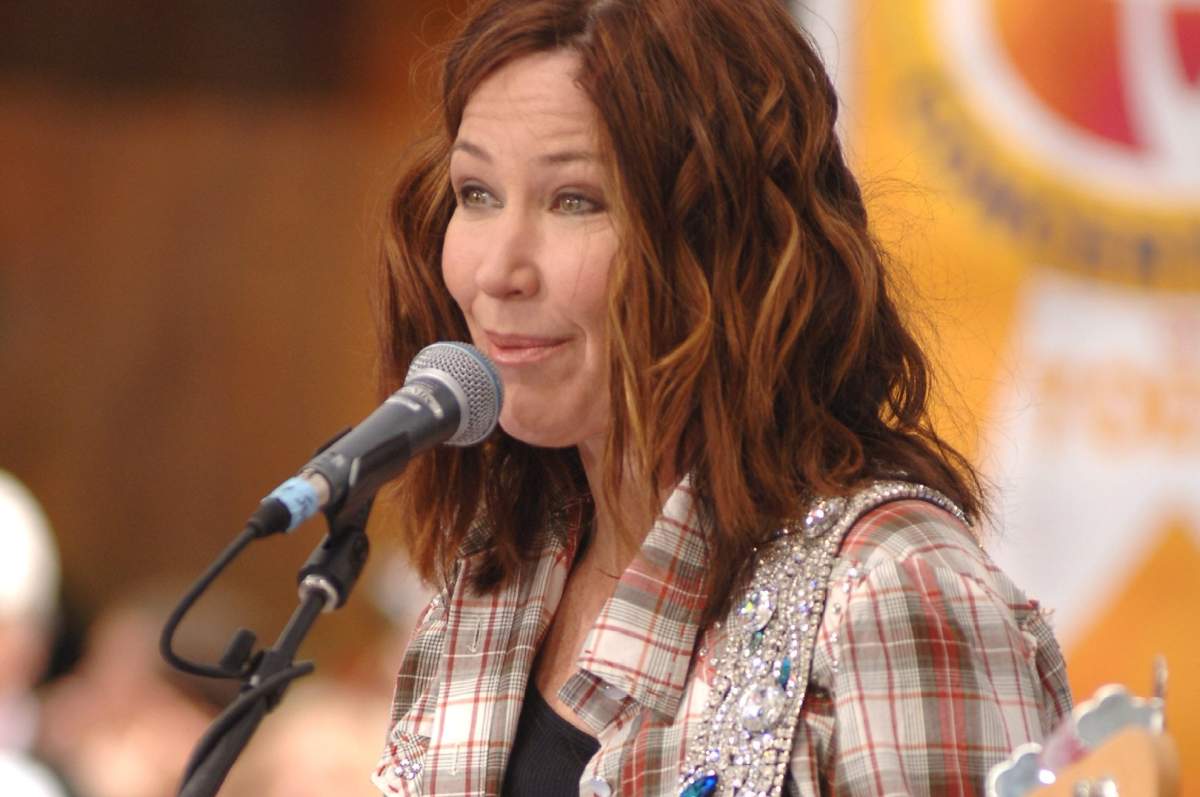My earliest memories of The Go-Go’s involve hearing We Got the Beat on the daily ride to university.

When it was my buddy Charlie’s turn to drive, we commuted in his beat-up 1970 Plymouth Scamp and a gnarly AM radio irreparably frozen on one of Winnipeg’s Top 40 stations.
With winter temperatures hovering around -30 C and the exhaust fog of other vehicles reducing visibility to near zero, there was something infectiously summer-like about the song’s propulsive rhythm and the surf-ish guitar solo.
But the best part is when Belinda Carlisle’s voice breaks at the 2:04 mark when she sings “Jumpin’, get down” followed by the twirly phrasing of “Round and round and round” a few seconds later. Pop perfection.
MORE ENTERTAINMENT NEWS: A ‘socially distanced’ concert — is this the future for music lovers?
But beyond We Got the Beat, Our Lips Are Sealed, and maybe Vacation, I didn’t give The Go-Go’s too much thought until I started getting into their history several decades later.
The fact that they came out of the LA punk scene (check out the original recording of We Got the Beat), creating this brilliant intersection incorporating New Wave and power pop; that they were rejected by dozens of sexist record label executives — all men, of course — because everyone knew all-girl groups were commercial death; that they became the first all-female group who wrote their own songs to have a number one album; and that they became hugely influential to a couple of generations of musicians, both female and male.
Oh, I’d heard other stories, such as The Go-Go’s being able to drink any band of dudes under the table. The extraordinarily hard partying. The quiet heroin problem that eventually caused things to fall apart. And there were issues over which members were making all the money because of the way songwriting credits work. It always comes down to money. (Drummer Gina Schock eventually sued over her share of royalties.)

Get daily National news
The Go-Go’s golden era ended after their third album, 1984’s Talk Show. Rhythm guitarist Jane Wiedlin left, altering the delicate chemistry, causing Carlisle and principle songwriter Charlotte Caffey to unilaterally break up the band in 1985. That was followed by a confusing series of reunions, another intra-band lawsuit, and the lineup settled back into its classic incarnation.
Now, though, The Go-Go’s legacy has been codified in a new documentary that explains just how important this group was (and still is) to music’s ecosystem.
I spoke with Kathy Valentine, the group’s bassist, from her home in Austin, Texas.
Alan Cross: I have to be honest. I didn’t realize that you guys made music history.
AC: Did you encounter any #MeToo situations back in the day.
KV: No. We were supported by all the musicians around us. No sexual favours involved!
AC: Sort out the reunions for me.
KV: Charlotte and Belinda broke up the band in ’85. There was a greatest hits tour in 1990. Then there was a second reunion in 1994. Then we needed to deal with Gina’s lawsuit between 1997 and 1999. Then it was back on the road with a new album, God Bless the Go-Go’s, which featured a single written by Green Day’s Billie Joe Armstrong (Unforgiven). And we’ve been touring regularly ever since. Well, with the exception of the 2010 “farewell” tour which never happened because Jane injured her knee and needed time to recover. Then there was my lawsuit over money, which saw me leave the band in 2012, so they toured without me for a couple of years. My suit was settled out of court in 2014 and two years later, I was back in the band for that postponed farewell tour. But we’re still playing shows. And this year, we released a new song called Club Zero to go with the documentary.
AC: It must be gratifying to see so many generations coming out to see you.
KV: Absolutely! We see our original fans who are bringing their 11-year-olds! We have 20-somethings, 30-somethings, 40-something, 50-somethings, and even 60-somethings!
AC: Where is everyone these days?
KV: I’m in Austin. Belinda lives in Bangkok. Charlotte’s in LA. The other girls live in San Francisco and Merida, Mexico. And of course, Gina’s done well, writing songs for Miley Cyrus and Selena Gomez.
AC: You did a Behind the Music a few years back. How is that different from the new documentary?
KV: That was a reality show designed for maximum drama and edited to fit the format of the show. Allison (Elwood, the director of the new doc) brought the humour and joy to our story. So much positivity. How we were fun and antidote to the Reagan years. It’s a proper record of what happened to the band.
AC: There are people who say you should be in the Rock and Roll Hall of Fame …
KV: Well, we’ll see.
AC: Finally, were the stories about the partying true?
KV: Well, being the ’80s, there was all that decadence and excess mixed with youth and sudden success. The standard rock’n’roll boilerplate stuff.
—
Alan Cross is a broadcaster with Q107 and 102.1 the Edge and a commentator for Global News.
Subscribe to Alan’s Ongoing History of New Music Podcast now on Apple Podcast or Google Play










Comments
Want to discuss? Please read our Commenting Policy first.